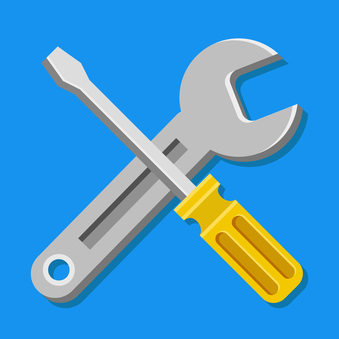- Wise Words -
What is a mentor, anyway?
by shelby pritchett
|
I remember it like it was yesterday. I was working at my first internship and everyone kept asking me if I had a mentor. Being new to the professional world, I was instantly struck with anxiety because I didn’t know. All of my friends and coworkers seemed to have mentors already . I thought something was wrong with me because I didn’t think I did. The reality was, I had plenty of mentors. Ultimately, my lack of understanding of what a mentor was kept me from realizing how many strong relationships I had already built and how many mentors I had encountered in my short professional career.
Mentorship is a different experience for everyone.and recognizing and maintaining these relationships can be complicated. Fortunately, my former anxious-intern-self discovered what mentors are and the tremendous value they can offer professionals at every stage of a career. Here, I’ll break down what mentorship is and explain some of the most common forms I’ve found to be beneficial. What is a Mentor? According to the dictionary, the definition of mentor is a “trusted counselor or guide.” I like this definition for its simplicity. While mentorship can be complicated, it comes down to a mutually beneficial, learning-based relationship with a trusted counselor. While many assume that a mentor is someone older and wiser, with years of advanced experience guiding fledgling young people, that’s not always the case. The truth is, mentors can be at any age or stage of life, and from any type of discipline. When seeking a mentor, it is important to fully anticipate what you want out of the relationship, and to determine how you can contribute to the relationship as well. 
Peer Mentorship
Peer mentorship is arguably one of the least recognized or under-appreciated forms of mentorship, but one of the most valuable. Because it tends to be a more casual, collaborative relationship, people don’t realize that it is actually a form of mentorship. A peer mentor is someone with a similar level of professional or life experience with whom you share a supportive, and oftentimes lateral, relationship. A peer mentor is someone with whom you relate and who can serve as a sounding board and provide feedback. Peer mentors provide a sense of teammate-to-teammate comfort and shared experience. Benefits: Peer mentorship has many benefits. It allows you to develop leadership skills in an accessible way. Interaction with peer mentors is typically less intimidating than with senior colleagues and provides the basis for a more reciprocal relationship. The relationship tends to be less formal and therefore easier to maintain. Challenges: The main challenge that peer mentorship presents is the potential for competition and conflict. While competition in small doses can be healthy, between peers it can sometimes be harmful. When working toward similar goals, it is easy to begin comparing yourself to your peers and creating unpleasant tension. Communicate issues with your peers openly and directly to avoid creating conflict triangles and ultimately making the issue more complicated than it needs to be. Help alleviate conflict by giving credit to co-workers and building each other up while establishing your own unique role in your organization. Be aware of peers’ progress, but focus on your individual path as well. 
Formal Mentorship
Formal mentorship traditionally involves pairing up with a colleague or professional contact with more or different experiences than yours to consult with regarding career growth and professional development. This mentor is someone you can seek out when you have important decisions to make, need advice on how to handle complicated situations at work, or want to test out new ideas. While it may be a manager or supervisor, this mentor don’t necessarily need to be a co-worker. In fact, sometimes it is better to have a mentor you don’t work with daily, whether inside or outside of your organization, who can provide an objective point of view. Benefits: With more worldly and professional experience, formal mentors can sometimes provide more guidance and wisdom than peer mentors. Their “been there, done that” point of view allows them to share advice based on successes (or failures) they have encountered during their careers. Formal mentors serve as teachers of sorts, and are able to identify issues and potential more readily than a peer might. Challenges: Because of their status or rank, more formal mentors may be less accessible than peer mentors. This makes arranging meetings and communicating regularly more difficult. Scheduling challenges can be resolved by establishing a consistent meeting schedule. Send your mentor a recurring calendar reminder for bi-weekly, monthly, or even quarterly meetings to ensure that you always have a spot on their schedule (while showing initiative on your end!). 
Mentorship Maintenance
Like any relationship, mentorships require communication and attention. Keep the relationship strong by staying in touch regularly. Even if you can’t make a meeting, drop your mentor/mentee a line to check in or share an interesting article or encouraging quote. Even casual conversation will help strengthen the bond. In the same light, when you have meetings with your mentor/mentee, come prepared with an agenda or questions to make the most of your time together. Most importantly, be flexible! Be willing to meet over Skype, on the phone or even via email. I am so fortunate to have realized the value that mentors can provide to professional growth. In my relatively short time as a professional, I have had the opportunity to learn from mentors in a variety of fields and with a variety of experiences. The diversity of that experience has benefited my own growth and will continue to play a vital role in my career. Interested is getting a Mentor? Read this column on "How to choose your mentor", 
Shelby Pritchett is an Account Supervisor at Finn Partners, one of the world’s fastest growing and largest independent PR firms. Shelby has traditional media relations and social media experience in B2B technology, healthcare and public affairs industries. In her current role, she plays an integral role in the day-to-day media relations strategy and program activation for clients. For more information on Finn Partners visit https://www.finnpartners.com/
Like this section? Why not send your own "Early Stage Professional:" advice and experience submission in? Just email it to: [email protected]
|


